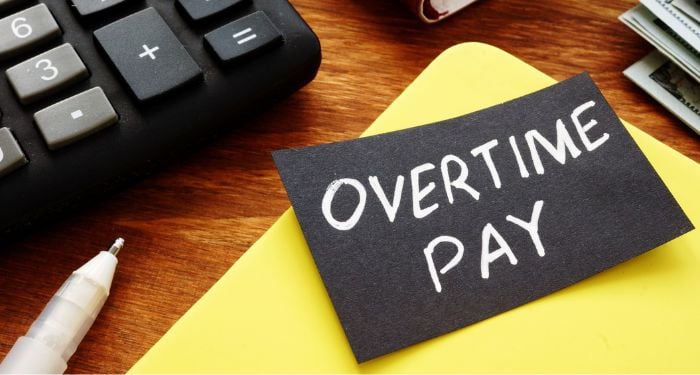H.R. 1 – The One Big Beautiful Bill Act (OBBBA): What It Means for Businesses
Since the signing of the bill on July 4th, our team has been hard at work breaking down each key income tax provision contained within the OBBB. Below is a summary of each point, effective dates, and what it means overall for businesses.
Business Income Tax Provisions
Expensing and Depreciation
- 100% Bonus Depreciation Made Permanent
- 100% expensing for qualified business property made permanent, with transitional options for reduced percentages in 2025.
- Effective Date: Property acquired after January 19, 2025
- What does it mean to you?
- Serves to match the tax deduction with the cash outlay for capital expenditures.
- Full Expensing of Domestic R&D Expenditures
- Domestic R&D expenses can be fully expensed immediately; foreign R&D remains amortized over 15 years.
- Effective Date: Amounts paid or incurred in taxable years beginning after December 31, 2024
- What does it mean to you?
- Removes a massive cash flow barrier to start-up tech companies and allows greater cash flow to spark innovation.
- Section 179 Expensing Limit Increased
- Limit increased to $2.5 million, phaseout at $4 million, with inflation adjustments.
- Effective Date: Property placed in service in taxable years beginning after December 31, 2024
- What does it mean to you?
- Increased 179 availability gives taxpayers greater flexibility on what assets to depreciate and when.
- Special Depreciation Allowance for Qualified Production Property
- Allows 100% expensing for certain nonresidential real property used in qualified production activities, with recapture rules.
- Effective Date: Property placed in service after the date of enactment
- What does it mean to you?
- Incentive to bring manufacturing back to the U.S. by accelerating cash flow through increased depreciation expense that would have otherwise been taken over 39 years.
- Floor on Deduction for Charitable Contributions
- For corporations, only the amount of charitable contributions that exceeds 1% of taxable income is deductible, up to the existing 10% cap.
- Effective Date: Tax years beginning after December 31, 2025
- What does it mean to you?
- Corporations will realize a reduced tax benefit on its charitable contributions.
Business Interest and Meals
- Business Interest Limitation (Section 163(j)) EBITDA Add-Back Restored
- EBITDA add-back is restored permanently, increasing allowable business interest deductions; floor plan financing expanded to certain trailers/campers.
- Effective Date: Tax years beginning after December 31, 2024
- What does it mean to you?
- Means that fewer businesses will be forced to add back interest expense – particularly for capital expenditures eligible for full bonus depreciation.
- Coordination of Business Interest Limitation with Interest Capitalization
- Business interest limitation applies before capitalization, and disallowed interest is not subject to future capitalization.
- Effective Date: Tax years beginning after December 31, 2025
- What does it mean to you?
- Provides clarity on how interest expense should be treated when subject to multiple tax regulations.
Credits and Incentives
- Paid Family and Medical Leave Credit Made Permanent and Expanded
- Credit made permanent, expanded to include insurance premiums, and clarified for aggregation and state/local paid leave.
- Effective Date: Tax years beginning after December 31, 2025
- What does it mean to you?
- Provides businesses with greater flexibility to support employees with family needs.
- Advanced Manufacturing Investment Credit Increased
- Credit increased to 35% of qualified investment.
- Effective Date: Property placed in service after December 31, 2025
- What does it mean to you?
- Incentivizes U.S. manufacturing of semiconductors and semiconductor manufacturing equipment.
- Low-Income Housing Tax Credit State Ceiling Increases Made Permanent
- State credit ceiling increases are made permanent, and bond financing requirements are relaxed.
- Effective Date: Calendar years beginning after December 31, 2025
- What does it mean to you?
- Gives states greater ability to fund affordable housing.
Energy Credits
- Limitation and Termination of Energy Related Credits
- The following credits are limited or terminated
- Energy Efficient Home Improvement Credit
- Residential Clean Energy Credit
- Previously Owned Clean Vehicle Credit
- Alternative Fuel Refueling Property Credit
- Clean Vehicle Credit
- New Energy Efficient Home Credit
- Commercial Clean Vehicle Credit
- Clean Electricity Production Credit
- Clean Electricity Investment Credit
- Effective Date: Tax years beginning after December 31, 2025, through 2027
- What does it mean to you?
- If you believe you are eligible for one of these credits – or are considering investing in clean energy property – consult with your tax advisor as soon as possible.
- The following credits are limited or terminated
All of the tax changes are a lot – believe us, we know. Stay tuned for upcoming articles where we will be providing in depth analysis on these changes and others.
For more information, or if you have thoughts and/or questions about the information outlined above, please do not hesitate to contact us; our seasoned and experienced tax professionals are always here to help. You can also learn more by visiting our Tax service page.




